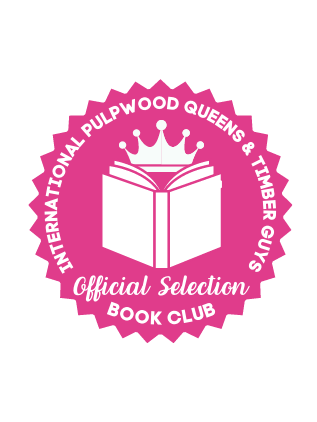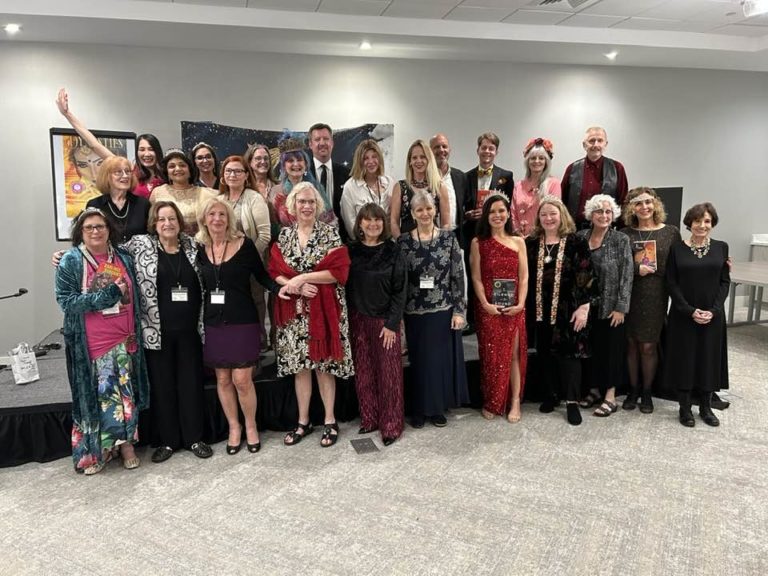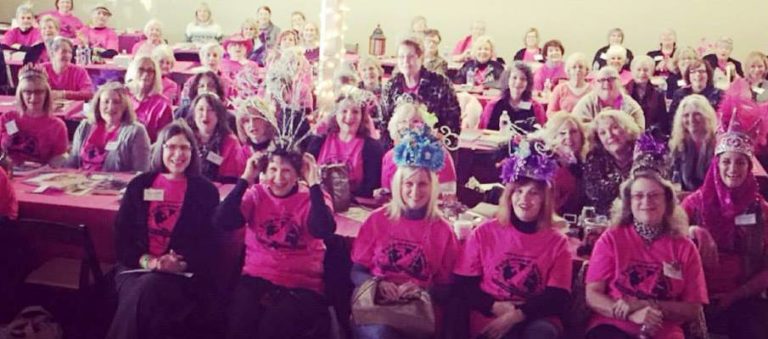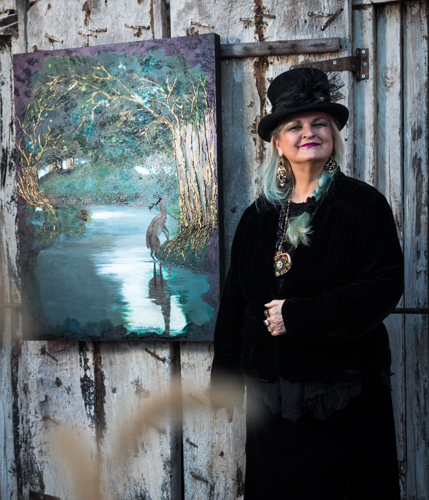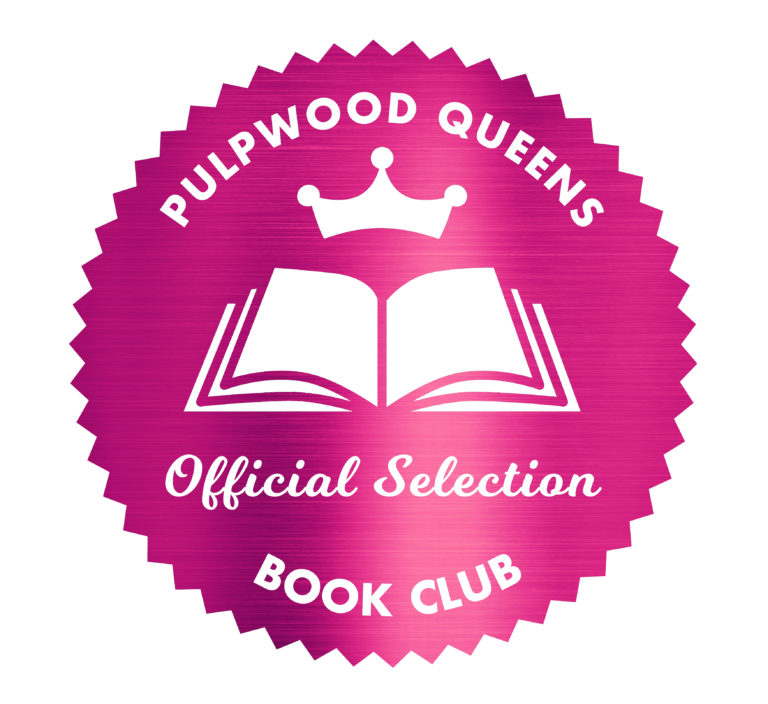So, You Think It Was Always a Memoir?
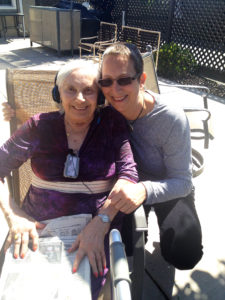 When you pick up a book you love, you may think that the author always intended to write it that way—that they conceived of the novel or the memoir to be just the way it turned out—they just had to execute it. Right?
When you pick up a book you love, you may think that the author always intended to write it that way—that they conceived of the novel or the memoir to be just the way it turned out—they just had to execute it. Right?
Wrong. At least for this author, who writes from the gut and the heart, that was never the case. I’ve just published my seventh book, a memoir, The Burning Light of Two Stars, a mother-daughter estrangement and reconciliation story, a narrative that moves back and forth through time, covering a 57-year-period, from my birth to my mother’s death.
It took me ten years to write the book. Why? Because I had no idea how to write it.
In its very first iteration, The Burning Light of Two Stars was going to be a play. My mother was an actor, and her long theatrical career in community theatre is one of the threads that weaves through the story. My mother is an amazing dramatic character. What better way to create a tribute to her, I thought, I’ll write a play!
Of course, I’d never written a play before.
I love the theatre and always have but being an avid audience member is a lot different than writing a play.
Oh, it can’t be that hard, I thought. I have theatre in my blood. In my bones. I can do this.
And so, the very first draft of The Burning Light of Two Stars was a play.
Here’s a scene from that early rendition. Temme is my mother’s name. Abe is my father, and Paul is my brother:
TEMME
The sixties changed everything. Joints started showing up at our suburban cocktail parties. Some of the more adventurous couples got into wife-swapping. Abe was interested, but I said, “No way!” And he accused me of being uptight. The world as I knew it was slipping through my fingers.
LAURA
Every morning as I got ready for school, I’d toast my cinnamon-apple pop tart while listening to the Vietnam body bag count on WBAI. And every morning, the news got worse. There was Mylai. Kent State. The campuses were on fire. Dad was reading Ramparts Magazine, listening to Ravi Shankar and silk-screening all night in the basement. My brother was smoking dope and playing electric guitar in the attic. I didn’t know what to think.
The summer I turned 13, my parents took me and my best friend to Woodstock. I’m sure it was Dad’s idea. I remember being in this huge traffic jam and this white guy with dreadlocks going from car to car, chanting “I’ve got the A. I’ve got the A.”
TEMME
It was acid! He was selling acid. What the hell was I doing in that place with two thirteen-year-olds? Why did I let Abe drag me up there? How could he have possibly thought it was a good place to take our daughter?
LAURA
We camped out and hiked into the festival. We heard Janis Joplin and Joe Cocker. Jimi Hendrix played the sunrise. People were naked and having sex and smoking joints all around us. It was a sea of mud. Mom fled back to the campsite. Dad was dancing and acting weird. It was so embarrassing. That’s what I thought at the time. But afterwards? All my life, I’ve gotten so much mileage out of saying I went to Woodstock.
TEMME
If I’m gonna be honest, I got a lot of mileage out of it, too—afterwards. But at the time. I was mortified! I should have been protecting Laurie, but how could I when her own father got swept up in that whole mess.
LAURA
The next summer, Dad drove Paul to college at the University of Colorado. They loaded up the car and headed west. Three days later, they got busted in Council Bluffs, Iowa for frolicking in a pot field.
TEMME TO AUDIENCE
My husband had the audacity to call me to wire him the bail money. And the thing that really pisses me off now is I did it. I sent him the fucking money! I should have let him rot in jail.
LAURA
I went on a bike trip through Nova Scotia that summer, and when I got back to base camp, there was this letter from Dad. He’d covered every inch of the envelope with tiny pen and ink drawings.
TEMME
Abe said he needed to “find himself” and he went out to Esalen, out in California, to do it. He signed up for an encounter group! He got stoned and took acid and was fucking other women. He even had the nerve to write and tell me about it, like I was his best friend. Abe just loved being free.
LAURA
In the letter, he said he wasn’t coming home. And that he wasn’t leaving because of me. That I’d always be his daughter. That he’d always love me.
TEMME
Abandoning his wife and daughter? That’s love all right! And Laurie? She blamed me for the whole thing. She said it was my fault. He walks out and abandons all his responsibilities, leaving a fucking mess behind him, and she blames me! One day she actually said, “Well, if you hadn’t been so uptight, he never would have left.” And I slapped her across the face. I couldn’t help it. I just saw red. I’d never hit her before. And I never did it again. And Laurie—she wouldn’t forgive me. She threw it up in my face.
And it went on from there.
After six months of concentrated work, I finished my “play.” I contacted a beloved, local theatre director, Wilma Marcus, and asked her if she’d read my script. She said yes and when she finished reading it, she gently informed me that what I had written wasn’t a play. It had no dramatic action. None whatsoever. It was dead. She said I should write my story as narrative.
But I still really wanted it to be a play.
So, I went to my friend and colleague, Susan Brown, and asked her if she would read it. She basically delivered the same message, but she was a lot blunter than Wilma, which is one of the things I love about Susan. You always know where you stand with her. She doesn’t coddle the writers who work with her. She demands their best work. And apparently, this wasn’t mine.
She said, “Laura, this is definitely not a play. A play is all dialogue and action. There’s no narrative arc. It’s episodic. it’s boring. I was drifting.
“I want to discourage you from writing a play. Playwriting is treacherous. People have been writing plays for 20-30 years. Why compete with them? You need stagecraft. To turn it into a play is to completely redo how you think and write.
“You’re such a beautiful writer. Your prose is beautiful This is a book. It’s your memoir. Write the damn book.”
I didn’t talk to Susan for weeks after that conversation. I was devastated. I hated her. She was mean. How could say that to me? For months, I felt hopeless and despairing. The story was dead. I had failed as a writer. I’d never pull this off. I gave up. It wasn’t the first time. And it wouldn’t be the last. I was done with this story. Done!
But the core story wouldn’t leave me in peace. No way could I abandon it. So, I set the “play” aside and started writing narrative. There had to be another way to tell my story. I just had to find it.
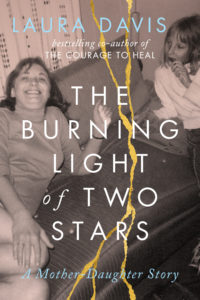 In its second iteration, I wrote The Burning Light of Two Stars as an epistolary memoir, composed entirely of letters. The idea came from a cache of letters I discovered in my mother’s belongings after she died. Both of us had sent long handwritten letters to each other throughout the years we were estranged. We couldn’t see each other in person, and when we attempted it, we fought bitterly, but despite the fact that I’d moved 3,000 miles away, largely to create distance from her, we managed to keep a thread of connection going through a colorful, vivid, often scathingly honest correspondence. She saved my letters and I saved all of hers. I saved first drafts of letters I composed to her as well as the ones I didn’t send—and after she died, I spent many weeks holed up in my office, going through a huge fat file folder full of those musty, old letters. Why not use them as a basis for the book about our relationship?
In its second iteration, I wrote The Burning Light of Two Stars as an epistolary memoir, composed entirely of letters. The idea came from a cache of letters I discovered in my mother’s belongings after she died. Both of us had sent long handwritten letters to each other throughout the years we were estranged. We couldn’t see each other in person, and when we attempted it, we fought bitterly, but despite the fact that I’d moved 3,000 miles away, largely to create distance from her, we managed to keep a thread of connection going through a colorful, vivid, often scathingly honest correspondence. She saved my letters and I saved all of hers. I saved first drafts of letters I composed to her as well as the ones I didn’t send—and after she died, I spent many weeks holed up in my office, going through a huge fat file folder full of those musty, old letters. Why not use them as a basis for the book about our relationship?
Then I thought, why limit myself to the real correspondence? Why not compose a whole new set of letters, written to my mother, from me, after her death? I’d always loved books made up of letters. What a great way to sort through our complex, volatile relationship. Another great idea!
So, for the next year or two, I started weaving the real letters, the ones we actually sent to each other, with letters I composed to her after her death. I decided to call the book, “Dear Mom.”
Here’s a representative letter from that draft, the epistolary version of The Burning Light of Two Stars, one of the made-up letters I drafted after her death:
—
Dear Mom,
I want to tell this story, the story of us, but I can’t. I’ve spent too many years sugarcoating the whole damn thing. In the redacted version, I’m always the heroine: the good daughter who took care of my demented mother until the end. The good daughter who went from not speaking to you to inviting you to move across the country—New Jersey to California—when your brain cells started going and you needed me the most. The good daughter who visited you every day.
Each time I walked into your apartment at Sunshine Villa, you looked at me with that huge smile and said, “You’re the best daughter in the whole world.” But I wasn’t. I wasn’t the best daughter in the whole world. I hated sitting in that room with you. Every time I walked in, I wanted to flee. That smell of old people and antiseptic? I hated it. The way the morning light streamed through the window? I couldn’t stand it: the glory of the light and the horror of your circumstances.
You sat on the couch, asleep, a raft of newspapers at your feet, head tipped back, jaw slack. Half the time I woke you. The other half, I crawled into your big, fluffy, white bed and took a nap. What else was there to do? Have the same conversation about Lizzy every day? It always went the same way. You’d say: “That granddaughter of mine. She has a la miles. Do you know what that means?”
“Yes, Mom, ‘all the virtues.’”
Those visits were excruciating. Is that why I slept?
Or was your bed the one place in the whole world I felt safest? Where I could lay my busy burden down? I listened to your reassuring snore as you napped on the couch across from me (oh good, she’s still alive), and the rest of the world dropped away. I didn’t have to be Laura Davis in that room. Is that why I slept?
There’s so much I don’t know. So much left for me to discover. I want to tell this story, but I don’t know if I can, considering my biased point of view and crappy memory. I don’t know if I can dig deep enough. If I can tell the hard parts. If I can face them. If I can write them down.
But our story is rising up inside me, demanding to be told.
It’s been three years since you died and, so far, the only way I’ve been able to tell our story is by whitewashing it, sharing the pre-digested version: how you betrayed me (with just a smidgeon about the difficulties I dished out in your direction), how we were horribly estranged for years but ended up forgiving each other, how the water ran clear between us at the end. The redacted version, the one where I keep the lid on, is a snore. Who wants to read another Hallmark card? I make a lousy heroine and you were so much more than a villain. We were both human and that’s the story I want to tell. I want to tell it the messy way. I want to tell it the real way. I want to look bad when I tell it. I want to tell the truth.
—
And so on. I really went to town on those letters. Eventually, I completed a whole draft of the manuscript, written entirely in letters. And when I sent it out to beta readers—tester readers—the feedback I got was pretty universal. “It felt like you two were having a private conversation. I felt left out.” “I didn’t really feel like I could get into the story.” “I don’t know why, Laura, but it just didn’t resonate with me.”
Maybe writing that epistolary memoir was good therapy for me, a good way to channel my grief. A good way to ferret out more raw material. But it still wasn’t a book. It wasn’t a story that worked. Damn it.
Back to the drawing board.
That’s why it took me ten years to write The Burning Light of Two Stars.
If you’re like to read more of the inside story—the real truth—of what it actually takes to write an intimate memoir, record an audiobook at home, and go through the ups and downs of publication and the book launch process, check out Laura’s blog, The Making of a Memoir.
———
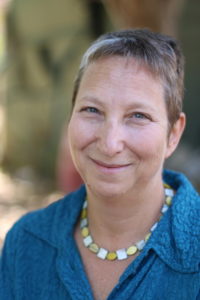 Laura Davis is the author of The Burning Light of Two Stars: A Mother-Daughter Story, the story of her loving yet tumultuous relationship with her mother, and six other non-fiction books. Her first books, The Courage to Heal and The Courage to Heal Workbook, paved the way for hundreds of thousands of women and men to heal from the trauma of sexual abuse. Becoming the Parent You Want to Be, a rich resource guide co-authored with parenting expert Janis Keyser, helped parents develop a vision for the families they want to create. I Thought We’d Never Speak Again: The Road from Estrangement to Reconciliation taught the skills of reconciliation and peace building, one relationship at a time. Laura’s groundbreaking books have been translated into 11 languages and sold two million copies.
Laura Davis is the author of The Burning Light of Two Stars: A Mother-Daughter Story, the story of her loving yet tumultuous relationship with her mother, and six other non-fiction books. Her first books, The Courage to Heal and The Courage to Heal Workbook, paved the way for hundreds of thousands of women and men to heal from the trauma of sexual abuse. Becoming the Parent You Want to Be, a rich resource guide co-authored with parenting expert Janis Keyser, helped parents develop a vision for the families they want to create. I Thought We’d Never Speak Again: The Road from Estrangement to Reconciliation taught the skills of reconciliation and peace building, one relationship at a time. Laura’s groundbreaking books have been translated into 11 languages and sold two million copies.
In addition to writing books that inspire and change people’s lives, the work of Laura’s heart is to teach. For more than twenty years, she’s helped people find their voices, tell their stories, and hone their craft. Laura loves creating supportive, intimate writing communities online, in person, and internationally.
Laura loves meeting with her readers and believes that a book is meant to be a collaborative conversation between author and reader. She loves the unpredictable and often intimate conversations that occur when readers bring their own family stories and life experience to the books she has written.
You can learn about Laura’s books and workshops, read the first five chapters of her new memoir, and receive a free ebook: Writing Through Courage: A 30-Day Practice at www.lauradavis.net.
- Welcome to the December 2024 Cover Issue of the Pulpwood Newsletter! - December 1, 2024
- New Author Members – November 2024 - December 1, 2024
- Welcome to the November 2024 Cover Issue of the Pulpwood Newsletter! - November 2, 2024
- New Author Members – October 2024 - October 31, 2024
- Welcome to the October 2024 Cover Issue of the Pulpwood Newsletter! - October 1, 2024
- Welcome to the September 2024 Cover Issue of the Pulpwood Newsletter! - September 1, 2024
- New Author Members – August 2024 - August 19, 2024
- Welcome to the August 2024 Cover Issue of the Pulpwood Newsletter! - August 5, 2024
- New Author Members – July 2024 - July 30, 2024
- Welcome to the July 2024 Cover Issue of the Pulpwood Newsletter! - July 1, 2024
